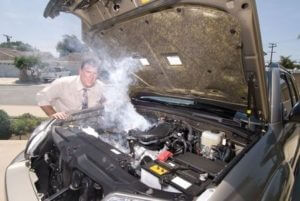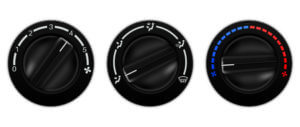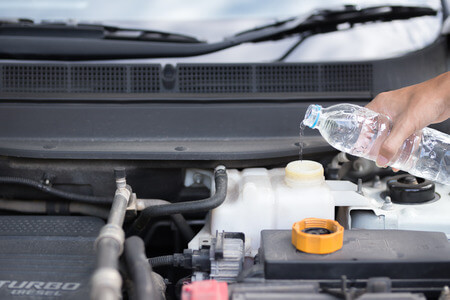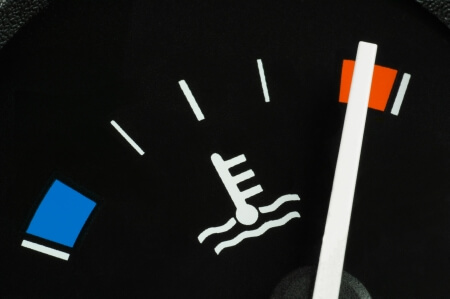What to do if your car overheats

Don’t make these mistakes if your car overheats
An overheating car is a serious issue that can lead to significant engine damage if not addressed promptly. Recognizing the signs of overheating and knowing how to respond can help prevent costly repairs and ensure your safety on the road. There’s a lot of bad advice on online about what to do if your car overheats. If you follow some of those crazy ideas, you can make the problem even worse, causing severe engine damage. Let’s start with the most common mistake and then move on to what you should do if your car overheats.
Avoid these common mistakes if your car overheats
1) You continue to drive but with your blower fan on high to compensate for overheating

Turning the blower fan to high won’t help
Here’s why this advice is bad
• First, The heater removes a minuscule amount of heat from the engine coolant. Running an overheated engine creates far more heat than you can remove by running the blower motor.
• Second, it assumes you still have enough coolant in your engine. Unfortunately, if you’re low on coolant and that’s causing your engine to overheat, turning on the blower motor won’t remove any heat because there’s no coolant in the heater core! So the engine will continue to run in an overheated condition, damaging it. Turning on the blower motor is a complete waste of time and energy.
2) You pull over, wait for the engine to cool, and then start driving again — Rinse and Repeat
This advice will make you feel really good. You pull over and shut off the engine. You pop the hood and let the engine cool off. After about 40 minutes, you fire up the engine and drive until it overheats again. You repeat this process until you get home and think you’ve avoided a repair bill.
In reality, you’ve most likely made the initial overheating even worse and caused serious engine damage in the process. The continued overheating and cooling down can cause an aluminum cylinder’s heat to warp, causing a head gasket failure.
The biggest problem with this advice is that you really don’t know what caused the overheating condition in the first place. Yet, you’re continuing to drive, addressing the symptom (the overheating) and not the cause.
3) You pull over, discover the coolant level is low, add water, and keep driving
You see the low coolant level and assume that’s what’s causing the overheating. So, adding water to raise the level and keep going makes sense— in the moment.

Adding water to compensate for a cooling system leak and overheating and then driving again is RISKY!
You’ve saved the cost of a tow. But what if you’re wrong about the low coolant level being the cause of the overheating condition? What if the overheating and low coolant level was actually caused by a head gasket breach? By driving it home, you may have allowed coolant and water into the crankcase, destroying the bearings int he process. Now, you’re looking at a complete engine rebuild or replacement for a minimum of $4,000.
It’s not worth the risk. Pay the cost of the tow and figure out the cause later when it’s at home or at the shop.
In each case listed above, you’ve turned a single incident of engine overheating into multiple incidents of cooling/overheating events—the worst possible thing you can do!

If your car overheats, pull over and call a tow truck
These Are The Immediate Steps to Take When Your Car Overheats
Find a safe spot to pull over. Turn off your engine, and turn on your emergency flashers
Driving with an overheated engine, even if it’s just to get to the nearest exit, can cause catastrophic engine damage costing several thousand dollars.
Call a tow truck
Make arrangements to have your car towed to a shop. Then call an Uber or Lyft to get you home

Call a tow truck. Then call a cab, Uber or Lyft to get home
What are the most common causes of engine overheating?
• A low coolant level caused by a leak
• A broken drive belt that runs the water pump
• A stuck-closed thermostat can cause overheating. You cannot check this on the side of the road. It must be removed and tested.
• A breached head gasket can cause overheating— In some cases, a head gasket breach between the cylinder and a cooling passage can cause the engine to pump hot combustion gasses into the cooling system, causing overheating.
• A clogged catalytic converter or muffler can cause engine overheating— Any clog in the exhaust system can cause the engine to run hot and overheat.
©, Rick Muscoplat
Posted on by Rick Muscoplat
